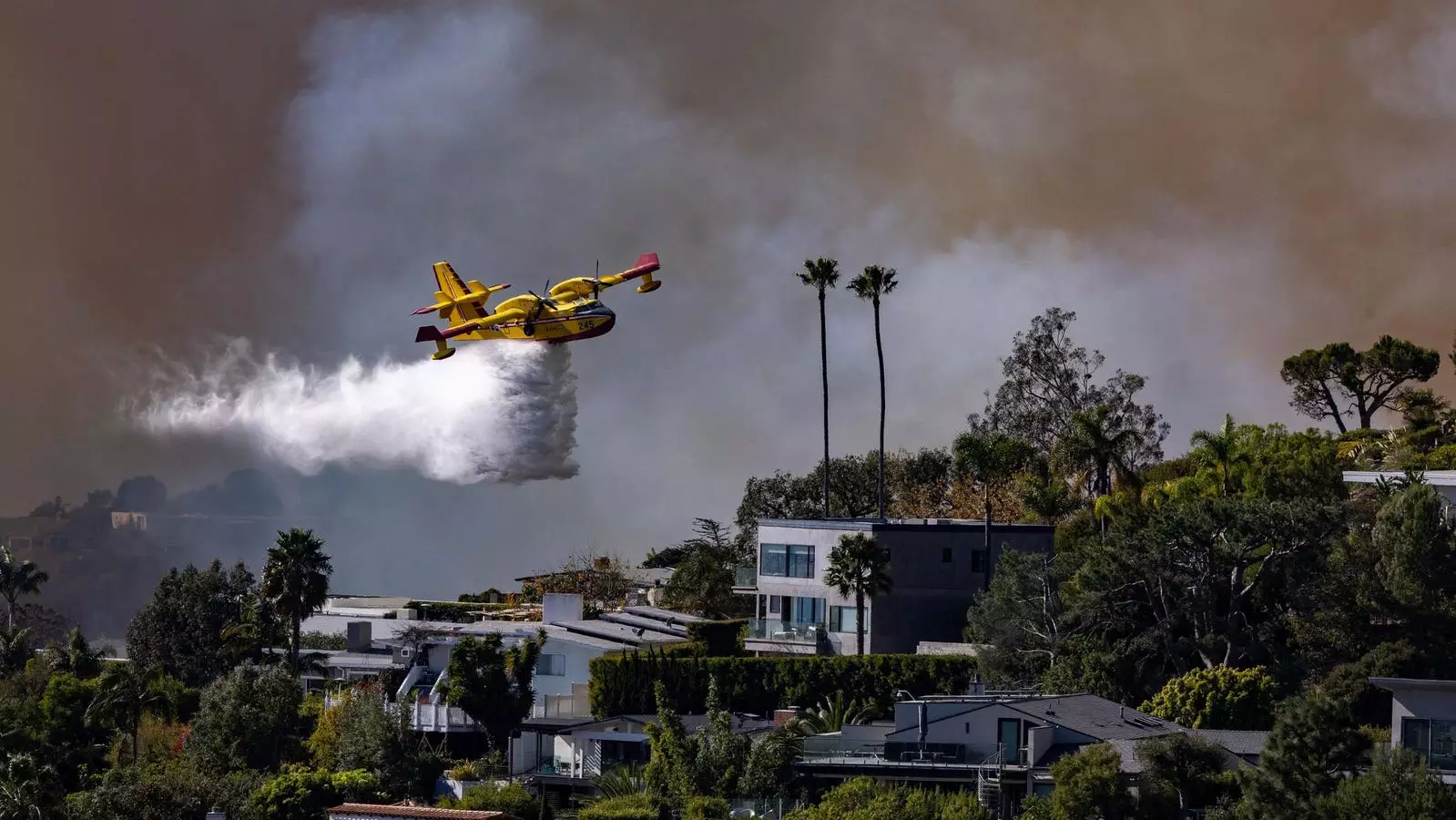In the wake of the recent wildfires that have devastated large areas of Los Angeles, public discourse has quickly turned toward the parties who may be implicated in the crisis. Most notably, the influence of Stewart and Lynda Resnick, owners of the Wonderful Company, has attracted attention. With a considerable stake in California’s agriculture and water management, their role has spurred significant online conversations. However, the narrative that links the Resnicks directly to the efficiency of LA’s emergency water systems oversimplifies a much more complex scenario.
The urgency of the situation prompts a critical examination of the realities behind firefighting capabilities in Los Angeles. Alarmingly, many individuals believe that water shortages are to blame for the inadequacies evident during these emergencies. Contrary to this belief, findings reveal that water reservoirs across the city remain adequately filled. Instead, the challenges are rooted in systemic issues embedded in California’s emergency water infrastructure, which needs urgent adaptation to better meet the demands wrought by climate change.
Addressing the root causes of wildfire challenges involves not only discussing immediate firefighting needs but also reflecting on long-term solutions. Dr. Mark Gold, a director at the Natural Resources Defense Council, emphasized that there has been an excessive focus on reducing greenhouse gas emissions without corresponding efforts to adapt infrastructure to changing climatic realities. “We are seeing climate whiplash more and more,” he notes, highlighting the volatility of climate behavior and its impacts on natural disasters such as wildfires.
Indeed, as climate change accelerates, traditional water management techniques may no longer suffice. Strategies for water security, wildfire prevention, and coastal resilience amidst rising sea levels require a fresh lens. Failure to adapt can lead to disastrous consequences not just for wildlife, but also for communities that are increasingly vulnerable to climate-driven disasters.
On a more positive note, in the wake of the disaster, the Wonderful Company has pledged $10 million towards Los Angeles fire relief efforts. Their commitment includes $1 million for the Los Angeles Fire Department Foundation and $500,000 to the Los Angeles Police Foundation. These funds represent an essential step towards mitigating the immediate impacts of the fires, yet they also raise crucial questions about corporate responsibility in times of crisis.
While financial contributions are undoubtedly valuable in addressing the fallout from natural disasters, they also place the onus on private entities to compensate for systemic failures. The fact that large corporations like the Wonderful Company have to intervene in disaster response suggests a persistent gap in public sector preparedness and infrastructure resilience. This provides an opportunity for policy makers to reevaluate water management systems to ensure they are up to the challenges posed by a rapidly changing environment.
While the immediate crisis pertains to wildfires, it is essential to broaden the discourse to include other critical factors such as agricultural practices, urban planning, and community preparedness. The future of California depends not merely on reactive measures but on proactive, holistic strategies that take into consideration ecological balance and sustainability.
Additionally, understanding the interconnectedness of water scarcity and wildfire risks can help inform more effective public policies. A collaborative approach that unifies governing bodies, environmental organizations, and private sectors will be crucial in strategizing a comprehensive framework to overcome these pressing challenges.
While public conversation frequently revolves around individuals like the Resnicks, it is crucial to extend our understanding of California’s water management complexities and wildfire challenges. By focusing on adaptation rather than simply mitigation, California can work toward a more resilient future in the face of climate change-induced disasters. The plight of Los Angeles, rather than being solely about the influence of wealthy individuals or corporations, is, ultimately, a call to rethink and redesign how we approach environmental crises and systemic issues head-on.

